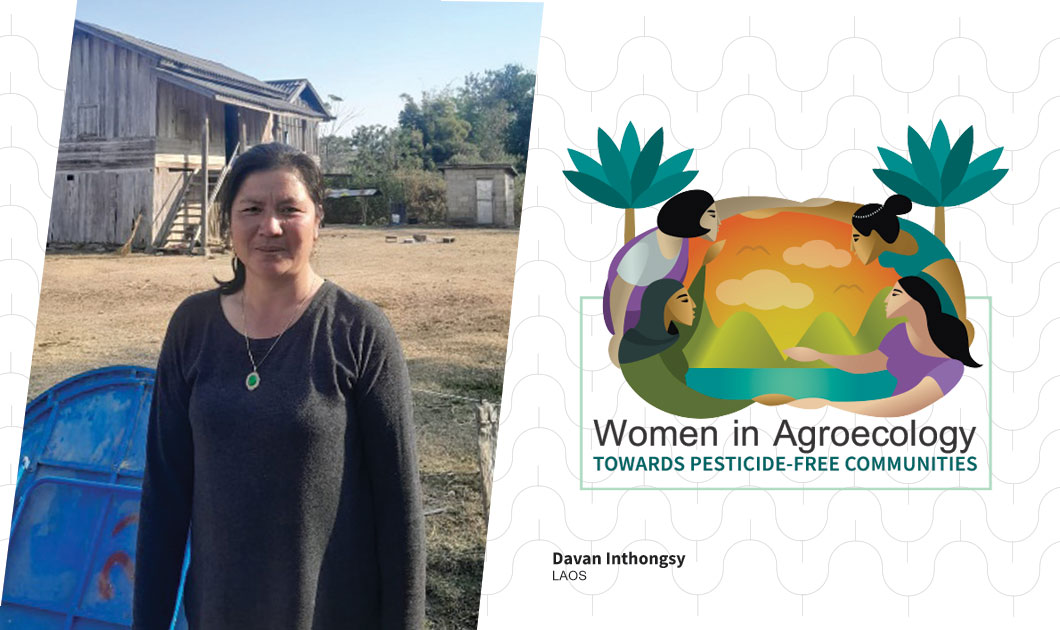Davan Inthongsy, 40, lives in Longpiew Village, Kham District, Xieng Khuang Province in Laos. Belonging to the majority ethnic Lao Loum (or lowland Lao) people, she plants maize and rice on 2.5 hectares of native customary land.
Davan uses chemical pesticides on maize. However, she doesn’t know the brand names and active ingredients of the pesticides she uses. As is common in many Asian farming communities, Davan only relies on the products that sellers recommend and are not informed of their risks. “I mix insecticides with maize seed before planting. Then, I spray herbicides and insecticides once a month after the maize grows. Sometimes, I hire a person to apply herbicides,” she said.
Davan has been farming for 15 years. After handling pesticides, she usually experiences poisoning symptoms such as nausea, dizziness, headache, and excessive sweating. “Usually when I mix the pesticides I feel dizzy, and after I spray pesticides, I get skin rashes.” The health impacts of pesticide use sometimes make her too unwell to work. “Time and money are wasted on medical care,” she added.
Davan observes negative impacts of pesticides on the environment. There is little biodiversity, especially beneficial insects that serve as natural pest control. She also attests that pests eventually become resistant to chemical pesticides. “When you use pesticides again and again, they no longer work.” Thus, pests such as armyworms and locusts have actually increased.
Nutrients in the soil have also decreased, forcing her to add more amounts of chemical fertilizer each year.
Davan shared that she would like to get out of the toxic cycle of chemical farming. While her community has not yet taken any action to reduce pesticide use, she hopes that it will someday as more farmers are becoming aware of its harmful impacts, not just on their health and the environment, but their livelihoods as well.
“We would benefit from a workshop, for instance, on the effective natural use of herbs to destroy weeds and pests. I would like to have more recommendations on how to manage weeds and pests so that I don’t need to use pesticides and herbicides that negatively impact human health and the environment,” she said. ###
Women In Agroecology: Towards Pesticide-Free Communities is a continuing storytelling initiative of PAN Asia Pacific and its partners to document stories of rural women who are survivors of pesticide poisoning and/or making the transition to agroecology.
Our contributing partners: Shikkha Shastha Unnayan Karzakram (SHISUK), Bangladesh; Society for Rural Education, India; Gita Pertiwi, Indonesia; Thanal Trust, India; PAN India; and Sustainable Agriculture and Environment Development Association (SAEDA), Laos








Discussion about this post